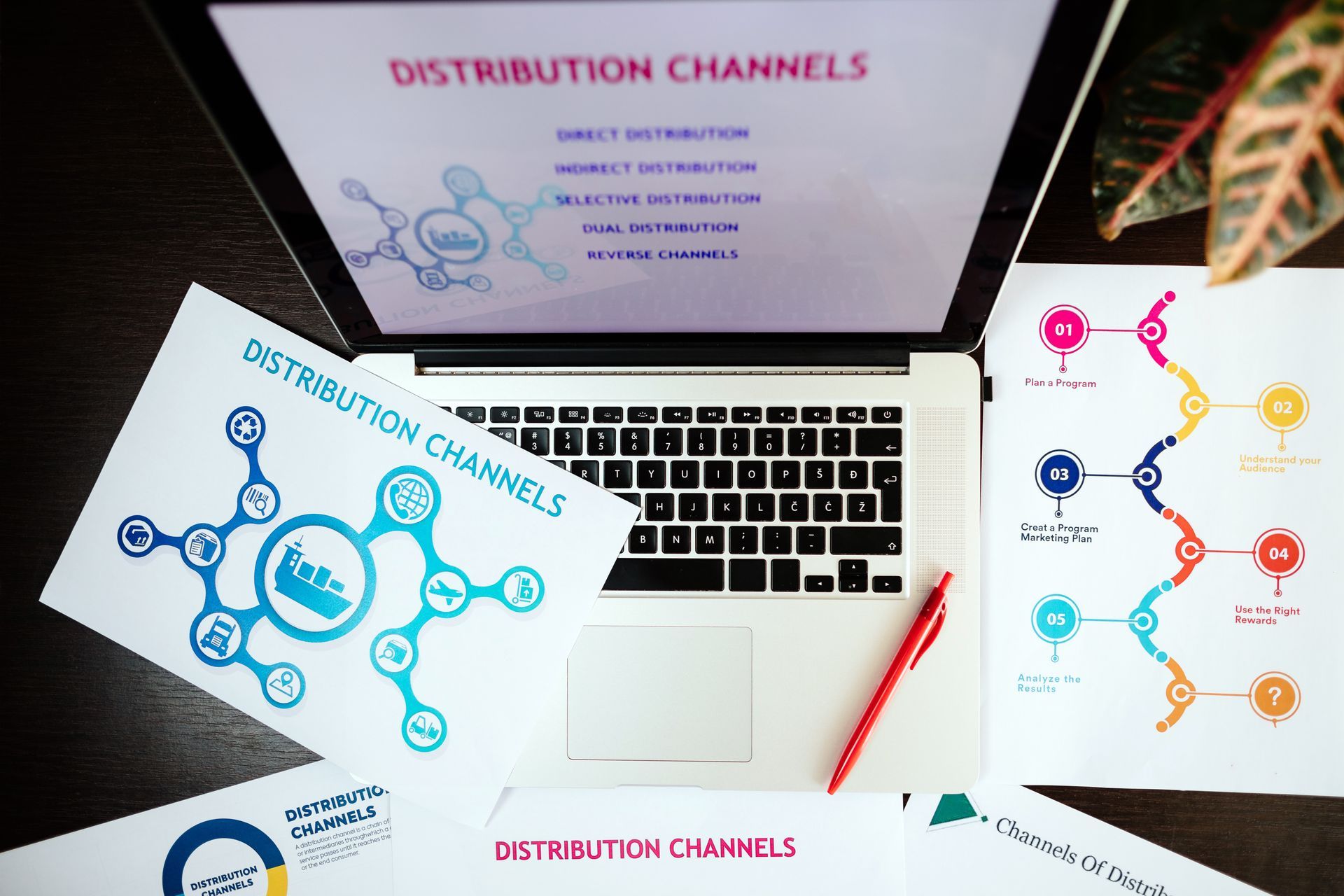Why 65% of CMOs Now Prioritize CDPs — And Why LayerFive Is a Top Choice

A striking 65% of CMOs now see Customer Data Platforms (CDPs) as essential. They highlight the growing role of unified customer data in business decisions.
This move towards CDPs is fueled by the need for better customer segmentation and data integration. It helps businesses tailor their marketing and boost ROI. LayerFive offers solutions to unlock consumer data value. This optimizes marketing and cuts costs related to data privacy.
Key Takeaways
- 65% of CMOs prioritize CDPs for unified customer data.
- LayerFive helps brands optimize marketing performance.
- Effective customer segmentation is key for personalized marketing.
- Data integration is vital for better ROI.
- LayerFive's solutions lower data privacy compliance costs.
The Evolving Digital Marketing Landscape
In today's world, more consumer data is spread across different channels. This, along with strict privacy rules, is changing how marketers work. They now face big challenges in handling and using consumer data well.
Fragmentation of Consumer Data Across Channels
The digital world is getting more complex. This has caused consumer data to spread out across many channels and devices. It's hard for marketers to keep a single view of their customers.
Some big problems are:
- Data is scattered across many platforms and devices
- It's tough to track how customers interact across different places
- Creating a complete customer profile is hard
This makes marketing harder. It's tough to know who the real customers are and where to attribute marketing efforts.
Increasing Privacy Regulations and Their Impact
Privacy laws like GDPR and CCPA are changing how marketers use consumer data. These laws bring strict rules for protecting data. This means marketers need to change how they work.
- They must follow data privacy laws
- They need to get consent from consumers for data use
- They must have strong data security
Marketers must adjust to these changes. This is to keep consumer trust and avoid legal trouble.
The Growing Challenge of Consumer Identity
In today's digital world, telling real consumers from fake ones is key. Customer insights are more important than ever. Yet, figuring out who is who across different places is getting harder.
Why Identifying Real Consumers Has Become Difficult
Consumer data is spread out over many channels and devices. This makes it tough to see the whole picture of a customer. With digital marketing, people interact with brands in many ways. This leaves behind a lot of data that's hard to put together.
"The digital world is making it tough for marketers to find and talk to their audience," says a top marketing expert. This shows we need a better way to handle data analysis and customer engagement.
The Cost of Misattribution in Marketing Spend
Wasting money on marketing because of wrong targeting is a big problem. If marketers can't find their customers, they might spend money on the wrong people.
Billions Wasted Due to Lack of Clarity
Every year, billions of dollars are lost because of unclear consumer identity. This mistake can make marketing campaigns fail and miss the mark with the audience.
Impact on Marketing ROI
The effect on marketing ROI is big. If marketing money is not spent right, ROI can go down. By getting better at customer insights and data analysis, companies can use their marketing money better and see better ROI.
Marketers need to understand how important it is to know who their customers are. By doing this, businesses can make sure their marketing works well. This leads to better customer engagement and better results for the business.
Customer Data Platform: The Foundation of Modern Marketing
In today's complex marketing world, a Customer Data Platform (CDP) is key for businesses. It helps unify customer data. As marketing gets more complex, the need for a strong CDP grows.
Definition and Core Functionality
A Customer Data Platform collects and organizes customer data from many sources. It creates a single, detailed customer profile. It does this through data ingestion, identity resolution, segmentation, and activation.
This way, businesses understand their customers better. They can offer more personalized marketing.
The main features of a CDP are:
- Data collection from multiple sources
- Identity resolution and profile unification
- Segmentation and audience creation
- Activation across various marketing channels
How CDPs Differ from Other Marketing Technologies
CDPs are often compared to Data Management Platforms (DMPs) and Customer Relationship Management (CRM) systems. They have different main uses.
CDPs vs. DMPs vs. CRMs
The main differences are in their main functions:
- CDPs: Focus on creating unified customer profiles for personalized marketing
- DMPs: Primarily used for anonymous data management and audience targeting
- CRMs: Designed for managing customer interactions and sales processes
Integration Capabilities with Existing Tech Stacks
CDPs are great because they can work with other marketing technologies. This makes your marketing ecosystem stronger. Our Marketing Data Platform, for example, unifies consumer identities and ensures GDPR/CCPA compliance.
By adding a CDP to your tech stack, you can:
- Improve data quality and accuracy
- Streamline marketing operations
- Enhance personalization and customer engagement
Why 65% of CMOs Are Investing in CDPs
The marketing world is changing fast. Now, 65% of CMOs see Customer Data Platforms (CDPs) as key to their plans. They want better customer segmentation, stronger omnichannel marketing, and more customer engagement. CDPs help by bringing together customer data for smarter marketing choices.
Research and Statistics Behind the Trend
Studies show CDPs are becoming more important in marketing. They help improve customer experience and marketing ROI. A big 65% of CMOs are investing in CDPs, seeing their big impact.
CDPs make marketing 20% more efficient, on average. They give a clear view of customers, leading to better marketing efforts.
Key Drivers of CDP Adoption Among Marketing Leaders
So, why are marketing leaders choosing CDPs? They need unified customer data to understand their audience better. CDPs offer a single, detailed customer view.
They also want to activate data across multiple channels. With a CDP, marketers can reach customers everywhere, from emails to social media.
"The right CDP can transform your marketing strategy by providing a unified customer view and enabling more effective customer engagement."
Marketing Expert
By using a CDP, marketing leaders can boost customer engagement and revenue. Whether on Shopify, B2B, or using data services, the right CDP can increase ROI and build trust with customers.
The Business Impact of Unified Customer Data
In today's world, having a unified customer data platform is key. It helps in targeting better and saving costs. Businesses can see big benefits that help their bottom line.
Unified customer data lets businesses make data-driven decisions. This leads to more effective marketing. With a full view of their customers, companies can boost their revenue.
Revenue Growth Through Better Targeting
Better targeting is a big plus of unified customer data. By looking at customer behavior and likes, businesses can make personalized marketing campaigns. These campaigns speak to their audience.
- Improved customer segmentation
- Enhanced personalization
- Increased conversion rates
Cost Reduction Through Operational Efficiency
Unified customer data also cuts costs. It makes data management smoother. This leads to:
- Less data duplication
- Fewer data processing mistakes
- Lower costs for data privacy
Our solutions make marketing better and cheaper. They help businesses have a more efficient and effective marketing plan.
Critical CDP Capabilities for Modern Marketing
Businesses today aim to give customers more personalized experiences. Customer Data Platforms (CDPs) play a key role in this. They help businesses understand their customers, run better marketing campaigns, and grow their revenue.
Identity Resolution and Profile Unification
Identity resolution is a key feature of CDPs. It brings together scattered customer data into one complete profile. This profile is vital for knowing what customers like and need.
- Unifies customer data from various sources
- Enhances customer understanding
- Improves marketing effectiveness
CDPs use advanced algorithms and machine learning. They match customer data from different places. This creates a unified customer profile that's both detailed and useful.
Segmentation and Activation Features
Good customer segmentation is key for targeted marketing. CDPs help businesses sort their customers by behavior, demographics, and preferences.
- Identify high-value customer segments
- Create targeted marketing campaigns
- Activate segments across multiple channels
This feature makes sure marketing hits the right audience. It boosts the success of marketing campaigns.
Analytics and Attribution Capabilities
CDPs also offer strong analytics and attribution capabilities. They help businesses see how well their marketing works. By linking marketing results to specific campaigns, businesses can improve their strategies.
- Measure campaign effectiveness
- Attribute outcomes to marketing efforts
- Optimize marketing strategies
This insight is key for making smart decisions and getting the most from marketing.
Introducing LayerFive's Marketing Data Platform
LayerFive's Marketing Data Platform helps brands use their consumer data to its fullest. We make this possible with our all-in-one platform. It takes data from different places and shows a complete picture of the customer.
Our Mission and Company Overview
LayerFive is a leading marketing tech company focused on data-driven decisions. Our goal is to give marketers a strong data management platform. This helps them understand their customers, tailor their marketing, and grow their revenue.
Our team of experts in marketing tech is dedicated to bringing innovative solutions. We aim to meet the changing needs of the industry.
Core Platform Architecture
The design of LayerFive's Marketing Data Platform is flexible, scalable, and secure. It has several key parts that work together. This gives a full data integration and data analysis capability.
Data Collection and Integration
Our platform is great at gathering data from many sources, both online and offline. It combines this data into one customer profile. This gives businesses a 360-degree view of their customers.
- Real-time data ingestion
- Support for multiple data formats
- Seamless integration with existing marketing tools
Processing and Analysis Capabilities
After collecting and integrating data, our platform's advanced tools kick in. We use the latest tech to study customer behavior and trends. This gives marketers insights to improve their campaigns.
- Advanced analytics and machine learning algorithms
- Real-time processing for timely insights
- Customizable dashboards for different user roles
How LayerFive Unifies Consumer Identities
LayerFive's Marketing Data Platform fills the gaps in consumer identity. Today's marketing world is complex, with identities spread across many channels and devices. This makes it hard for marketers to offer personalized experiences. LayerFive's platform uses advanced technology to link these identities together.
Identity Resolution Technology
LayerFive's core is its identity resolution technology. It combines different data points into one complete customer profile. This gives marketers a 360-degree view of their customers. It's key for targeted marketing and better customer engagement.
The process uses advanced algorithms and machine learning. It matches customer data from various sources. This ensures accurate customer identities, even with incomplete data. Marketers get accurate and actionable customer insights from LayerFive.
Cross-Device and Cross-Channel Tracking
LayerFive also tracks customers across devices and channels. In today's world, customers interact with brands on many platforms. LayerFive's technology follows these interactions, giving a unified view of the customer journey.
This tracking helps marketers offer coherent and personalized marketing experiences. It's vital in omnichannel marketing for building strong customer ties. With LayerFive, customers get consistent messages and experiences, no matter the device or channel.
Enhanced Attribution: Making Every Marketing Dollar Count
In today's competitive marketing world, every dollar matters. Marketing strategies are getting more complex. It's key to know how each campaign and channel works. LayerFive's advanced attribution tools give marketers the insights they need to make smart choices.
LayerFive's Attribution Models
LayerFive has top-notch attribution models for marketers. These models use advanced algorithms and machine learning. They show how different touchpoints lead to sales. This helps marketers spend their budgets wisely, focusing on what works best.
Key benefits of LayerFive's attribution models include:
- Accurate measurement of campaign effectiveness
- Insights into the customer journey across multiple touchpoints
- Data-driven decision making for budget allocation
Real-Time Performance Insights
LayerFive's platform shines with its real-time performance insights. Marketers can see how their campaigns are doing right away. This lets them make quick changes to get better results. Real-time data is a big help in today's fast marketing world.
Channel Performance Analysis
LayerFive's platform lets marketers dive deep into channel performance. They can see which channels bring the most value. By looking at engagement, conversion rates, and ROI, they can tweak their strategies for better results.
Campaign Optimization Opportunities
With LayerFive, marketers can spot chances to improve their campaigns on the fly. They can use data to tweak their strategies, target better, and boost campaign success.
"The ability to attribute marketing performance accurately is a game-changer. It allows us to invest in what works and eliminate what doesn't, driving significant improvements in our ROI." - Marketing Executive
By using LayerFive's advanced attribution tools, marketers can make every dollar count. This leads to better ROI and builds trust with consumers.
Data Privacy Compliance Made Simple
LayerFive's Marketing Data Platform makes data privacy easy for today's businesses. With changing data privacy laws, companies struggle to keep up. They need to follow rules while keeping their marketing strong.
GDPR and CCPA Compliance Features
LayerFive's platform has strong tools for GDPR and CCPA compliance. It offers data encryption, access controls, and ways to handle data subject rights. These tools help businesses avoid big fines and penalties.
Key compliance features include:
- Data encryption at rest and in transit
- Access controls and user authentication
- Data subject rights management
- Data retention and deletion policies
A data privacy expert says, "Good data privacy is about trust, not just following rules." Trust is key for a business to grow.
Consent Management and Building Consumer Trust
Managing consent well is key to data privacy. LayerFive's platform helps manage consent for different data uses. This way, businesses can build a strong, trust-based relationship with their customers.
Consent management best practices include:
- Clear communication about data use
- Easy opt-out mechanisms
- Granular consent options
LayerFive's platform simplifies data privacy and consent management. It helps businesses avoid fines and saves money on compliance. This makes marketing more efficient and trustworthy.
LayerFive Solutions for Different Business Models
LayerFive's platform meets the needs of various businesses, from e-commerce to enterprise data services. It supports Shopify, B2B, and data services, aiming to boost ROI. Its focus on custom solutions has made it a favorite among different business models.
E-commerce and Shopify Integration
E-commerce businesses, including those on Shopify, benefit from LayerFive's integration. It improves customer data management and offers real-time insights. This helps in better marketing and customer engagement.
Shopify integration allows businesses to use LayerFive's advanced data tools. This drives sales and enhances customer experiences.
B2B Marketing Data Solutions
LayerFive also supports B2B businesses with advanced data solutions. It helps identify and target high-value customers. This way, B2B marketers can understand their customers better, leading to better marketing strategies.
The outcome is better lead generation and conversion rates.
Enterprise Data Services
Large enterprises get a wide range of data services from LayerFive. It unifies customer data across various channels and systems. This gives enterprises a single, accurate customer view, improving marketing and customer service.
With LayerFive, enterprises can grow their business through data-driven decisions.
Case Studies: Brands Succeeding with LayerFive
LayerFive has helped many brands succeed by managing customer data better. It brings together customer data and gives insights that help businesses grow. This way, companies can make smart decisions based on data.
E-commerce Success Story
An online retailer was having trouble with customer data. It used LayerFive's platform to fix this. This led to a 25% increase in conversion rates.
The retailer could now target its marketing better. It used LayerFive's advanced segmentation capabilities to find and focus on valuable customers.
B2B Marketing Transformation
A B2B marketing firm was struggling to see how its marketing helped sales. LayerFive's platform helped it unify its customer data and understand marketing impact better. This led to a 30% increase in marketing ROI.
The firm could now optimize its marketing spend thanks to LayerFive. It used real-time performance insights to improve its marketing strategies.
Conclusion: The Future of Marketing Is Data-Driven
The marketing world is changing fast, thanks to the need for data-driven choices. As people's habits get more complex, brands must use a customer data platform to keep up.
LayerFive is leading this change, with a strong customer data platform. It helps brands combine their data, get instant insights, and grow their sales. With LayerFive's tools, marketers can tackle issues like data spread, privacy rules, and wrong data use.
The marketing scene will keep evolving, and data-driven marketing will be key. LayerFive lets brands use their data fully, grow their business, and stay ahead in a fast-changing market.
Marketers who go for a data-driven way can make sure their plans are based on real, complete customer data. This makes customer experiences better and boosts ROI. LayerFive guides brands through this new world, helping them make smart choices and succeed.
FAQ
What is a Customer Data Platform (CDP) and how does it differ from other marketing technologies?
A Customer Data Platform (CDP) collects and organizes customer data from various sources. It gives a single, complete customer profile. Unlike Data Management Platforms (DMPs) and Customer Relationship Management (CRM) systems, CDPs offer a unified view of customers. This helps with personalized marketing, customer segmentation, and omnichannel marketing.
How does a CDP help in achieving data privacy compliance?
A CDP aids in data privacy compliance by managing consent, data access, and anonymization. It ensures businesses follow GDPR and CCPA rules. This way, companies can avoid non-compliance risks and costs.
Can a CDP integrate with our existing marketing tech stack?
Yes, most CDPs can integrate with many marketing technologies. This includes CRM systems, marketing automation platforms, and data management platforms. It helps businesses use their current tech while improving customer data management.
How does a CDP enhance customer segmentation and personalization?
A CDP creates detailed customer profiles, leading to better segmentation. This makes marketing efforts more targeted and personal. It boosts customer engagement and revenue growth.
What kind of analytics and attribution capabilities can I expect from a CDP?
CDPs offer advanced analytics and attribution. This includes cross-channel attribution, customer journey analysis, and ROI measurement. These tools help marketers see how well their campaigns work and make better decisions.
How does LayerFive's Marketing Data Platform help businesses?
LayerFive's platform unifies consumer identities, improves attribution, and ensures data privacy. It gives a full view of customer data. This helps businesses increase ROI, build customer trust, and simplify marketing data.
You might also like:




